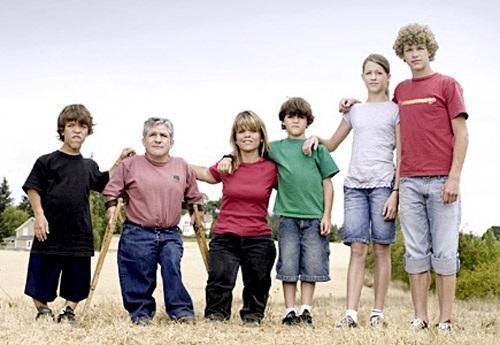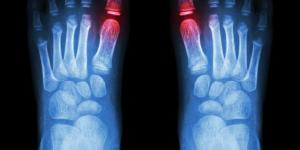Is Dwarfism Hereditary ?


Achondroplasia, popularly known as dwarfism, is a condition that affects 1 in 20,000 people. Sufferers have an average size head while the body is smaller than usual, with less than 1.30 in women and 1.40 in men. Many people say that this condition is inherited, but is it true? If you're wondering if dwarfism is hereditary, let OneHowTo.com help you understand the subject better.
Types of dwarfism
There are several types of dwarfism, although one of them is the most common of all and accounts for a total of 70% of cases worldwide. Achondroplasia is the most common type and is due to a genetic defect by which the body generates a protein known as fibroblast growth factor in excess. This causes problems in normal bone development, leading to short stature and arms and legs that are proportionally very short in relation to the head.
There are other less common types of dwarfism:
- Atypical achondroplasia: this is similar to achondroplasia but with less obvious symptoms.
- Diastrophic dysplasia: this generates significant mobility problems as it also affects the spine.
- Problems with growth hormone: the body and head is proportional in these cases. The person is short but legs and arms are in proportion to their head.
- Other types of dwarfism may be brought on by various syndromes, hypothyroidism, and other conditions.
More than 200 different types of dwarfism have been identified, so it is important to thoroughly study each case to determine its origin. Some of them can be treated if detected early.
Is dwarfism hereditary ?
Determining whether dwarfism is hereditary will depend on several factors. To better explain this, we will use achondroplasia, the most common type of dwarfism, as an example. As it is a genetic disorder, dwarfism can occur in a family of parents of normal height, without any prior cases. That is, 1 in 20,000 children born can suffer from dwarfism without any previous history. These cases make up 75% of patients with achondroplasia.
If a parent suffers from dwarfism, the possibility of inheriting the disease is 50%, whereas if both parents are dwarves the percentage increases to 75%. However, only 25% of cases worldwide correspond to this pattern.
Take int account that people may not have dwarfism but if there is a family history of dwarfism then your progenitor may be a carrier too. In this case, chances are 25%.
If you are concerned about this issue, it is best you talk to a doctor that specializes in genetics so he or she can clarify any of your doubts.
This article is merely informative, oneHOWTO does not have the authority to prescribe any medical treatments or create a diagnosis. We invite you to visit your doctor if you have any type of condition or pain.
If you want to read similar articles to Is Dwarfism Hereditary ?, we recommend you visit our Diseases & secondary effects category.




